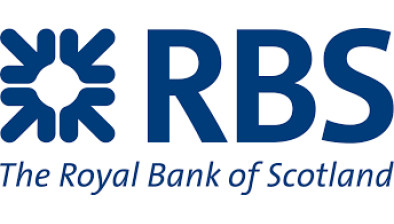RBS: Hiring activity across Scotland continues to fall in March

The latest data from the Royal Bank of Scotland Report on Jobs survey signalled a fall in permanent staff placements across Scotland for the second consecutive month in March.
The reduction was fuelled by ongoing economic uncertainty, which resulted in increased hesitancy among companies to commit to new hires. Additionally, temp billings fell for the sixth month running.
In terms of labour supply, there was a further sharp fall in the number of candidates for permanent vacancies, while temp staff availability fell at the weakest pace in the current 25-month period of contraction.
At the same time, growth of demand for permanent staff moderated in March, with vacancies rising at the slowest pace in just over two years. Furthermore, demand for temp workers contracted for the third consecutive month.
In terms of pay, pressures on starting salaries and wages remained marked, partly due to the cost-of-living crisis, but also competition for workers amid ongoing labour shortages.
Downturn in permanent staff hires softens from February
Permanent placements across Scotland fell for the fifth time in the past six months in March. According to recruiters, the latest downturn was largely driven by economic uncertainty and hesitancy to commit to new hires.
While the rate of contraction across Scotland moderated notably from February, it was stronger than that recorded for the UK as a whole.
A sixth straight monthly decline in temp billings was reported across Scotland in March. That said, the respective seasonally adjusted index picked up from February’s 32-month low, indicating the softest decrease in billings since December last year.
However, at the UK level, temp billings continued to increase and at the quickest pace since September 2022.
Marked contraction in permanent staff supply
A further drop in permanent labour supply was recorded across Scotland in March, thereby stretching the current run of contraction to 26 months. The pace of decrease was broadly similar to that seen in February and stronger than the series average. According to anecdotal evidence, fewer permanent candidates were available partly due to economic uncertainty and the subsequent reduction in active job seekers.
In contrast, the UK as a whole recorded the first rise in permanent labour availability in over two years, albeit one that was mild overall.
March data revealed a fractional drop in temp staff availability across Scotland. Notably, the pace of contraction moderated further from December last year and was the weakest seen in the current 25-month sequence of reduction. A preference for permanent positions and hesitancy to switch roles reportedly weighed on availability. However, fewer work opportunities and the completion of projects helped to improve short-term labour supply in some areas.
Meanwhile, the availability of candidates for temporary vacancies at the UK level increased for the first time in 25 months.
Growth in starting salaries moderates, but remains rapid
Salaries for new permanent hires rose rapidly across Scotland in March. Competition for skilled staff, the cost-of-living crisis and labour shortages were said to have driven up salaries. While the rate of inflation was stronger than the historical and UK-wide averages, the pace of growth was the softest seen in 23 months.
March data pointed to a sharp rise in hourly wages for temporary workers across Scotland, thereby extending the current run of growth to 28 months. While the pace of temp wage inflation intensified from February, the upturn was among the weakest in the aforementioned sequence, and broadly in line with the historical average.
The pace of wage growth across the UK as a whole was quicker than that seen for Scotland.
Softer upturn in demand for permanent staff
Permanent job openings grew solidly across Scotland in March. However, the latest upturn was the softest seen for just over two years and weaker than that at the UK-wide level.
Of the eight monitored sectors, nursing/medical/care saw the strongest upturn in permanent staff demand, with IT & computing ranking second.
Demand for temporary workers across Scotland fell for the third month running in March. The rate of contraction was marked overall, and contrasted with a modest increase in temp vacancies across the UK as a whole.
The steepest drop in temp staff demand was seen for blue collar roles, followed by executive & professional.
Sebastian Burnside, chief economist at Royal Bank of Scotland, said: “March data revealed a further decline in hiring activity across Scotland, as ongoing economic uncertainty weighed on firms’ appetite for new staff.
“Moreover, with growth in permanent vacancies weakening further, and temp vacancies falling for the third month running, it appears unlikely that recruitment trends will improve much in the coming months.
“Nevertheless, despite the slowdown in hiring, pay pressures remained acute. This was in part fuelled by the cost-of-living crisis, but also increased competition for scarce candidates.”






